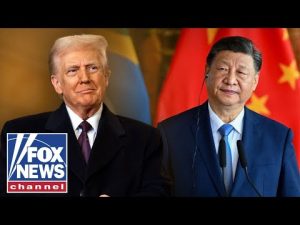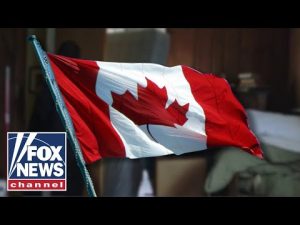In the world of geopolitics, few situations are as perplexing as the ongoing crisis in Venezuela. This South American country, once brimming with oil wealth, has been reduced to chaos under the leadership of President Nicolás Maduro. Now, this isn’t just a tale of a failing regime; some believe it highlights a more sinister plan to reshape global power dynamics, led by none other than Maduro himself. It seems this president isn’t just focused on keeping his own people afloat; he’s playing chess while the rest of the world is playing checkers.
Rumor has it that Maduro is attempting to create a new global order in record time. Some analysts say he aims to collapse existing systems and replace them with a network of cronyism and alliances that challenge American sovereignty. This reshuffles the deck of international relations faster than you can say, “madurocracy.” While many see the chaos as simply a reaction to mismanagement, others believe it’s a part of a grander scheme supported by military might from nations like Russia and China. What does that mean for the U.S.? It might just call for a game plan that pushes back against these adversarial influences, especially if American interests are at stake.
Speaking of stakes, President Biden recently made waves by identifying drug trafficking as a national security concern. With more than 300,000 Americans reportedly succumbing to drugs last year, it’s hard to blame him. The administration claims that efforts to control the flow of drugs crossing the borders align with their mission to reclaim American sovereignty. This latest announcement has some wondering if the U.S. is readying itself for more aggressive measures—especially as the dangers escalate from not just drug cartels, but the countries harboring them. It’s a complex mesh of issues that goes beyond just party politics—this is about life and death.
But hang onto your hat, because not only is the world of drug trafficking emerging as a hot-button issue, but Venezuela remains a focal point. With B2 bombers flying overhead and the U.S. Navy keeping a close eye on its oceans, could someone like Maduro really sleep soundly at night? Doubtful. After all, when you hear the ominous rumblings of military might from a country you fear and distrust, it’s bound to induce a little insomnia. Add internal strife within Venezuela, and it’s a recipe for a restless night.
Let’s not forget the historical echoes in these discussions. Comparisons have been drawn between today’s political strategies and events like Operation Valkyrie, where conspirators sought to rid Germany of Hitler. Some argue that the U.S. is weaving a similar narrative. They believe signals sent by the Biden administration hint at a willingness to push back hard, and potentially use force, if necessary. After all, if you want the bad guys to know you mean business, sometimes a little fear goes a long way. In the end, we have to give credit where credit is due; the chess game of international relations is more intricate than anyone could have imagined, and everyone has a role to play—even those in power who might not be on the right side of history.
In this tangled web of power, drugs, and geopolitical maneuverings, one can only wonder what the next move will be. The American people may find themselves asking whether the next chapter in the Venezuelan saga will end up shaping the future of diplomacy—or send the world spiraling toward chaos. One thing is for sure: for better or worse, the stakes have never been higher.







